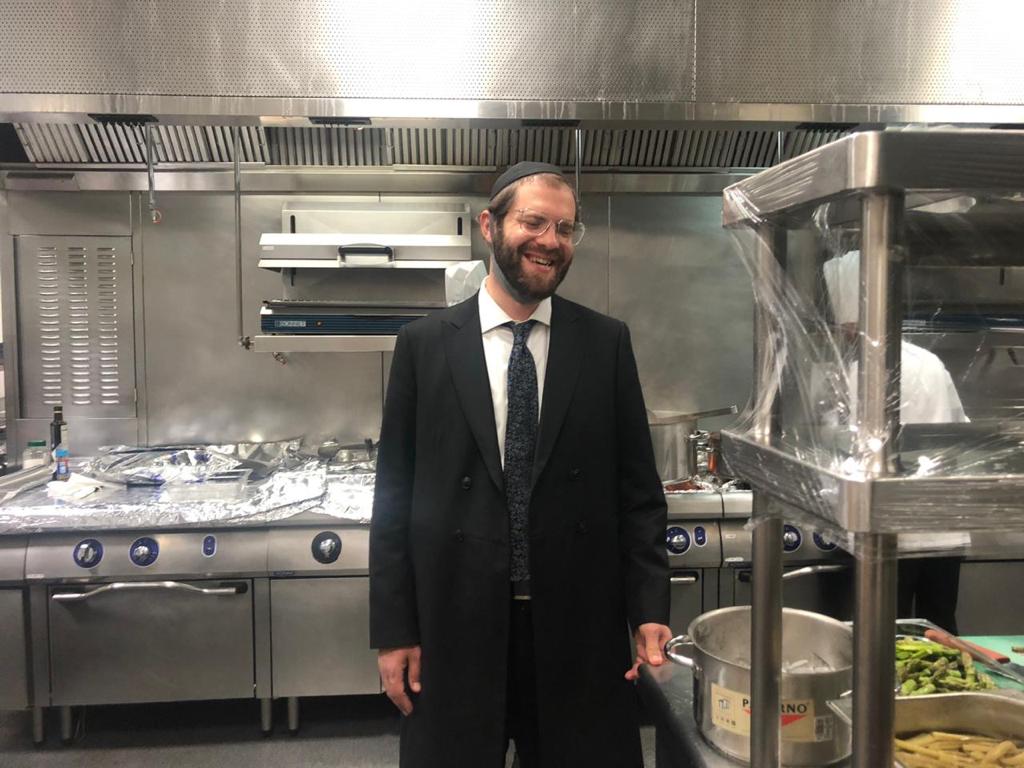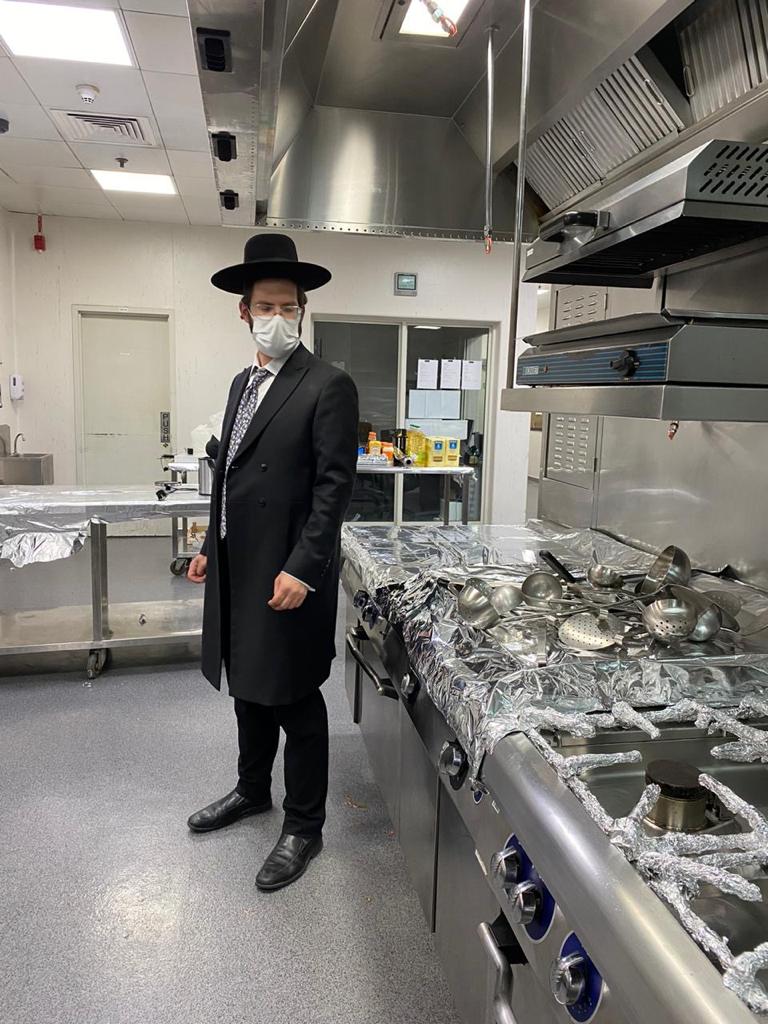DUBAI: Rabbi Yissachar Krakowski was present in Abu Dhabi for the historic meeting between Israeli and Emirati leaders last month to cement their newly normalized relationship, but unlike many of the Jewish contingent, it was not his first trip to the Gulf.
“I’ve traveled to the UAE several times before, and was in Saudi Arabia earlier this year,” he told Arab News.
Krakowski is an American citizen based in Tel Aviv, where he coordinates the Israeli operations of OU Kosher, the Jewish food certification agency.
New York-based OU Kosher aims to guarantee that food supplied to and consumed by Jewish diners conforms to kosher rules — the complex structure of religious laws that ensures it adheres to 2,000-year-old conventions.

Krakowski is an American citizen based in Tel Aviv, where he coordinates the Israeli operations of OU Kosher. (Supplied)
Kosher has many similarities with Islamic halal regulations, so it is no surprise that it is manufactured and certified in several Gulf countries for export to the West and even — until now via a circuitous route — to Israel.
Krakowski oversaw the kosher requirements of the Israeli delegation during their ground-breaking two-day visit to Abu Dhabi, and was impressed by the organizational efficiency of his Emirati hosts.
“It’s a complex process, involving separate kitchen facilities and preparation, even cutlery, but it was well organized, right down to the place cards marked with a ‘K’ to show which diners wanted kosher food. In fact, there was twice as much kosher food as we needed,” he said.
Krakowski is the son of a former US State Department official, and has traveled the world, but has always been impressed by the “real hospitality” he has enjoyed in the Middle East.
“There are lots of similarities between Hebrew and Arabic, and between kosher and halal food, like slaughter ritual and the ban on pork,” he said.
“But in my opinion, there are many intricacies in kosher and we’re super-pedantic about applying them. It’s a very old and rigorous set of laws” he added.
“We’d like to work more closely with the halal organizations in the UAE and other parts of the Middle East.”

Krakowski said there was a sense of excitement on the Israeli side about the prospects for normalized ties with the UAE. (Supplied)
OU Kosher this week announced that it has accepted a request from the leadership of the UAE to become the leading kosher certification agency in the country.
It will oversee all kosher arrangements in hotels throughout the UAE, as well as events such as the Expo 2020 trade fair, which has been postponed until next year because of the COVID-19 pandemic.
OU Kosher already certifies more than 1 million ingredients in 10,000 food-production plants in 100 countries around the world.
Krakowski said there was a sense of excitement on the Israeli side about the prospects for normalized diplomatic, travel and business relationships with the UAE and other Arab countries.
“We’ve been looking forward to it for many years. There was a real feeling of mutual benefit at the meetings in Abu Dhabi,” he said.
Many of the passengers on the flights between Tel Aviv and the UAE were businesspeople already seeking new opportunities in the Gulf.
Beyond food, Krakowski sees potential benefits across the business spectrum — in technology, medical services, agriculture, real estate, and of course tourism. “I’m sure a lot of Emiratis will want to visit Israel with its rich history,” he said.
Does he think other Gulf countries will follow the UAE example in normalizing relations with Israel? Yes, but maybe at a slower pace.
“Nobody would’ve expected even a month ago that the UAE would’ve done it, but when it comes to other countries, including Saudi Arabia, I think it’s further off,” he said.
“I believe they want to get along with us better, but it may take some time for official movement.”
OU Kosher, founded nearly a century ago in the US as the certification arm of the Orthodox Union (OU) of Jewish organizations, is the largest of the world’s kosher agencies.
Several Emirates hoteliers, including the Al-Habtoor Group, are planning to introduce kosher menus in their properties in anticipation of an expected influx of Jewish tourists and businesspeople after the normalization deal.























